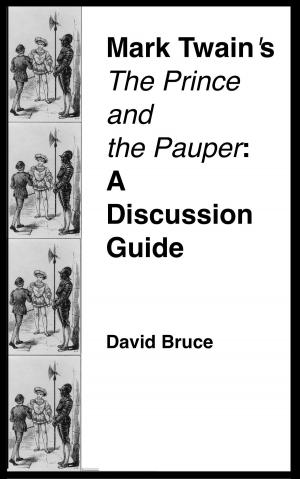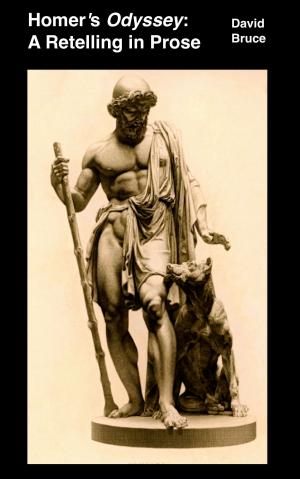Christopher Marlowe’s Tamburlaine, Parts 1 and 2: Retellings
Romance, Historical, Fiction & Literature, Literary| Author: | David Bruce | ISBN: | 9780463610541 |
| Publisher: | David Bruce | Publication: | August 17, 2018 |
| Imprint: | Smashwords Edition | Language: | English |
| Author: | David Bruce |
| ISBN: | 9780463610541 |
| Publisher: | David Bruce |
| Publication: | August 17, 2018 |
| Imprint: | Smashwords Edition |
| Language: | English |
“What is it that I must conceive of and respond to and that I must subdue and control?
“It is that which has stooped the topmost of the gods and stopped the tempest of the gods who have come even from the fiery star-spangled veil of Heaven, to feel the lovely and lowly warmth of shepherds’ flames and enter cottages strewn with reeds.”
The classical gods often fell in love with and slept with mortals. In order to sleep with the mortal woman Mnemosyne, Jupiter, the King of the gods, disguised himself as a humble shepherd, and so the topmost of the gods stooped.
Jupiter is the god of xenia, which is often translated as hospitality. He grew angry at mortals in a certain region because of their lack of hospitality, and he and Mercury went in disguise to that region and knocked on doors and asked for hospitality. Ancient Greece had no inns, and so this was the accepted way of getting a meal and a place to stay. All of the heads of households in the region refused them hospitality except for an elderly couple named Baucis and Philemon, who invited them into their humble cottage. In gratitude, Jupiter and Mercury destroyed all the homes in the region except for the home of Baucis and Philemon. Here, the beauty of hospitality had stopped the tempest — anger — of the gods and caused them to be merciful.
Tamburlaine continued:
“Let me repeat: I thus both conceiving of and responding to beauty and subduing and controlling that response, shall cause the world to believe, for all my low birth, that virtue — excellence, in my case excellence as a military commander — solely is the high point of glory, and forms men with true nobility.”
Tamburlaine was as good as his word: While meditating on Zenocrate’s beauty, he had allowed his soldiers to slaughter all the inhabitants — men, women, and children — of Damascus. He knew that this would cause Zenocrate anguish because Damascus was in the territory controlled by her father, the Sultan of Egypt.
“What is it that I must conceive of and respond to and that I must subdue and control?
“It is that which has stooped the topmost of the gods and stopped the tempest of the gods who have come even from the fiery star-spangled veil of Heaven, to feel the lovely and lowly warmth of shepherds’ flames and enter cottages strewn with reeds.”
The classical gods often fell in love with and slept with mortals. In order to sleep with the mortal woman Mnemosyne, Jupiter, the King of the gods, disguised himself as a humble shepherd, and so the topmost of the gods stooped.
Jupiter is the god of xenia, which is often translated as hospitality. He grew angry at mortals in a certain region because of their lack of hospitality, and he and Mercury went in disguise to that region and knocked on doors and asked for hospitality. Ancient Greece had no inns, and so this was the accepted way of getting a meal and a place to stay. All of the heads of households in the region refused them hospitality except for an elderly couple named Baucis and Philemon, who invited them into their humble cottage. In gratitude, Jupiter and Mercury destroyed all the homes in the region except for the home of Baucis and Philemon. Here, the beauty of hospitality had stopped the tempest — anger — of the gods and caused them to be merciful.
Tamburlaine continued:
“Let me repeat: I thus both conceiving of and responding to beauty and subduing and controlling that response, shall cause the world to believe, for all my low birth, that virtue — excellence, in my case excellence as a military commander — solely is the high point of glory, and forms men with true nobility.”
Tamburlaine was as good as his word: While meditating on Zenocrate’s beauty, he had allowed his soldiers to slaughter all the inhabitants — men, women, and children — of Damascus. He knew that this would cause Zenocrate anguish because Damascus was in the territory controlled by her father, the Sultan of Egypt.















